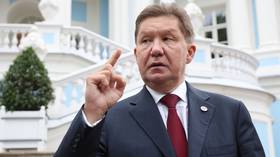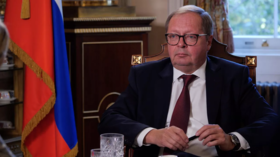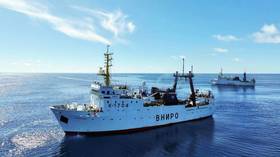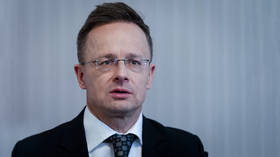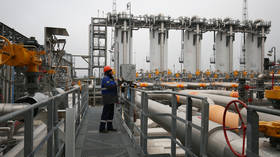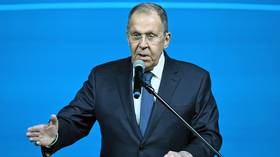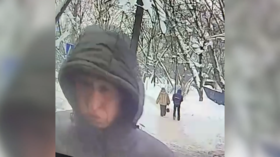EU warns against ‘dangerous’ Russian gas
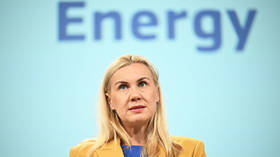
Any new deal to keep Russian gas flowing to the European Union through Ukraine would be a “dangerous” choice, the bloc’s Commissioner for Energy, Kadri Simson, claimed on Tuesday.
EU countries are well prepared for a winter without Russian gas, the energy chief said at a news conference following a meeting of the bloc’s energy ministers in Luxembourg.
The comments also come as a key gas transit agreement between Moscow and Kiev is due to expire at the end of the year.
“There are no excuses, the EU can live without this Russian gas,” Simson said, as quoted by Bloomberg. “This is a political choice, and a dangerous one.” The European Commission is fully prepared for a zero-transit scenario thanks to alternative supply routes and strong levels of storage, Simson claimed.
According to the State of the Energy Union Report issued last month, gas imports from “trusted partners” such as Norway and the US have increased, and the bloc reached its 90% winter gas storage target in August, well ahead of the November 1 deadline.
Last month, the energy chief admitted that member states still relied heavily on Russian supplies, which accounted for 18% of the EU’s imports, as of June 2024. Three years ago, the figure stood at 45%.
The EU declared the elimination of its reliance on Russian energy as among its key priorities after the Ukraine conflict escalated in February 2022. Sanctions imposed on Moscow and the sabotage of the Nord Stream pipelines in 2022 have led to a dramatic drop in Russia’s gas supplies to the bloc.
Brussels’ refusal to buy Russian energy has been crippling the EU’s economic growth, Hungarian Prime Minister Viktor Orban said last week. Hungary and several other EU nations, including Austria, Slovakia, the Czech Republic, and Italy, are still importing Russian pipeline gas.
The five-year transit deal between Kiev and Moscow brokered by the EU expires on December 31. Earlier this year, Ukrainian leader Vladimir Zelensky said Kiev would not extend the agreement. Instead, Ukraine could replace Russian gas with supplies from Azerbaijan for transit to the EU, he argued.
Ukrainian Prime Minister Denis Shmigal reiterated this position during talks with his Slovak counterpart, Robert Fico, last week.
Russia has said that it’s ready to continue deliveries beyond 2024. The CEO of Russian state-run energy giant Gazprom, Aleksey Miller, warned last week that the EU could be committing “energy suicide” by shunning Russian gas. The bloc’s policies will result in further deindustrialization, increased volatility on the gas market, and may lead to a new gas price shock and supply disruptions, Miller argued.
